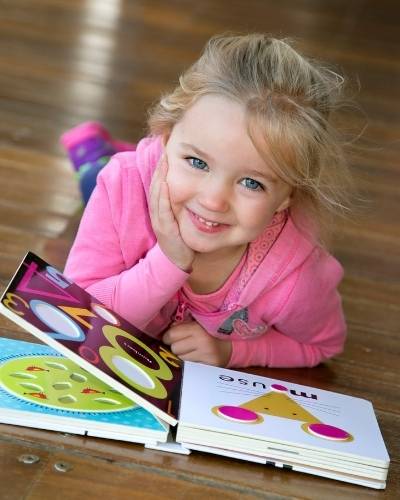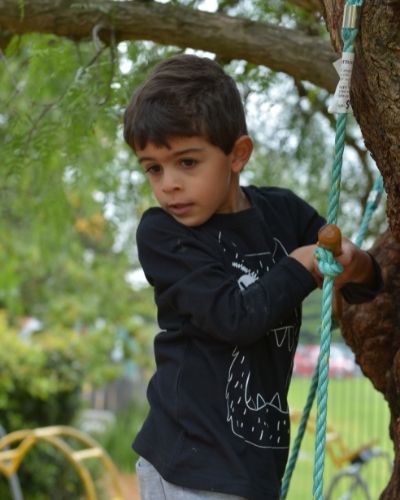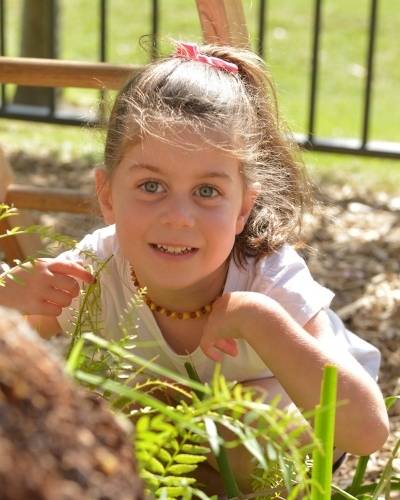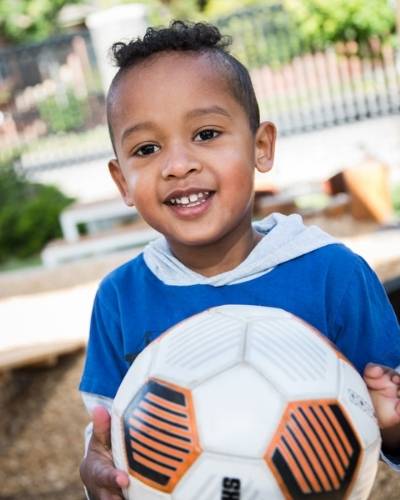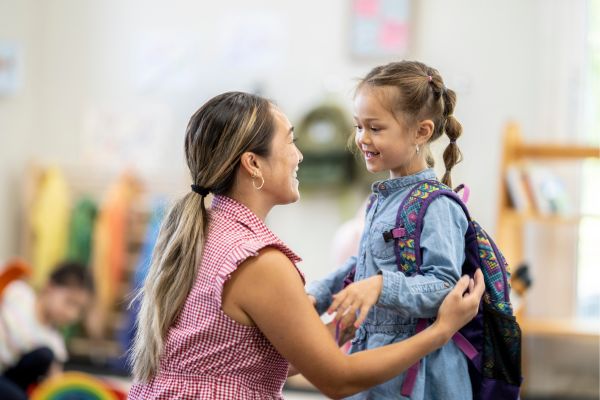Childcare Orientation
Orientation at Embracia
The first time attending childcare can be daunting for both children and their parents.
Our goal is to make the transition to care as smooth as possible. And ensure we work in partnership with families and support children to learn and grow.
Why is orientation important?
Orientation acts as a bridge for children to explore their new environment while family members are there. If children see their family welcomed, and their ideas and suggestions listened to, respected, and valued, it will build on the child’s sense of belonging in the centre.
Orientation sessions will take place before your child’s first day, so they can meet their educators. They will also explore the space and engage in activities with their peers.
Communication between the family and our educators is key to successfully moving into childcare. This is a great time to share information, any concerns and develop a consistent plan which can be implemented in care and at home. Orientation is a safe space that is social and helps minimise separation anxiety and fear of strangers. We recommend parents (or the primary caregiver) are present and take an active part in play and conversations during the orientation sessions to prepare for the first day.
How to prepare
The first day can be difficult for parents and children alike, and everyone will adjust at their own pace. The more information our team has about your child and their preferences, personality, likes and dislikes the better. Here are some strategies for parents to help prepare:
- Have positive discussions with your child about their first day and how fun it will be.
- Bring a comfort item or toy from home, like a special book, teddy or blanket.
- Try and keep the first days or week shorter than it will be in the future, parents are also welcomed to join during the first few days.
- Make sure our educators know your child’s food preferences and dietary requirements.
- Your child gets a good night’s rest before the first day.
What to bring?
For your child to have the most fun, we suggest they wear easy-to-wash and comfortable clothing. Shoes should be enclosed, and clothes should be unrestrictive to give them the freedom to run, hop, jump and climb. Only dress or pack clothes you are willing to paint, play, garden and explore in. We don’t recommend dressing in anything too special.
Make sure to pack the following for the first day:
- You will need to bring 1-3 changes of clothes, clearly labelled, depending on the age of your child. Clothing needs to be consistent with our sun smart policy.
- A warm jacket in the colder months as we believe there is no wrong time to play outdoors, just the wrong clothing.
- Any bottles ready with sterilised water if your child is formula fed.
- For under 12 months, we recommend a safe baby sleeping bag that your child is familiar with, to foster good sleep routines.
- If your child has a skin condition and uses specific wipes, nappies or sunscreen that are not a brand we provide, you will have to supply these items.
- We provide the rest, including a sunhat, nappies, food and formula.
For older children who are mobile and capable we recommend bringing their own backpack. One they can carry that holds all their belongings is ideal. Identifying their own pack and carrying it to and from childcare is an important step in development and promotes independence.
Saying ‘Bye’
This is the hard part! And it’s ok to feel a little overwhelmed. It’s normal for children to cry when you leave, while some will seem unphased. Everyone is different and will adjust at their own pace. We recommend establishing a routine for drop off and finding what works to settle them before you leave. Make sure to say ‘Goodbye’, we know this can be hard. But it’s important to establish trust and reassure your child you’ll be back.
One of the most important things is to have open communication with the educators. Remember kids are more resilient than we give them credit for and our team are only a phone call away. We are here to support the whole family and offer guidance, knowledge and advice during the transition period.
